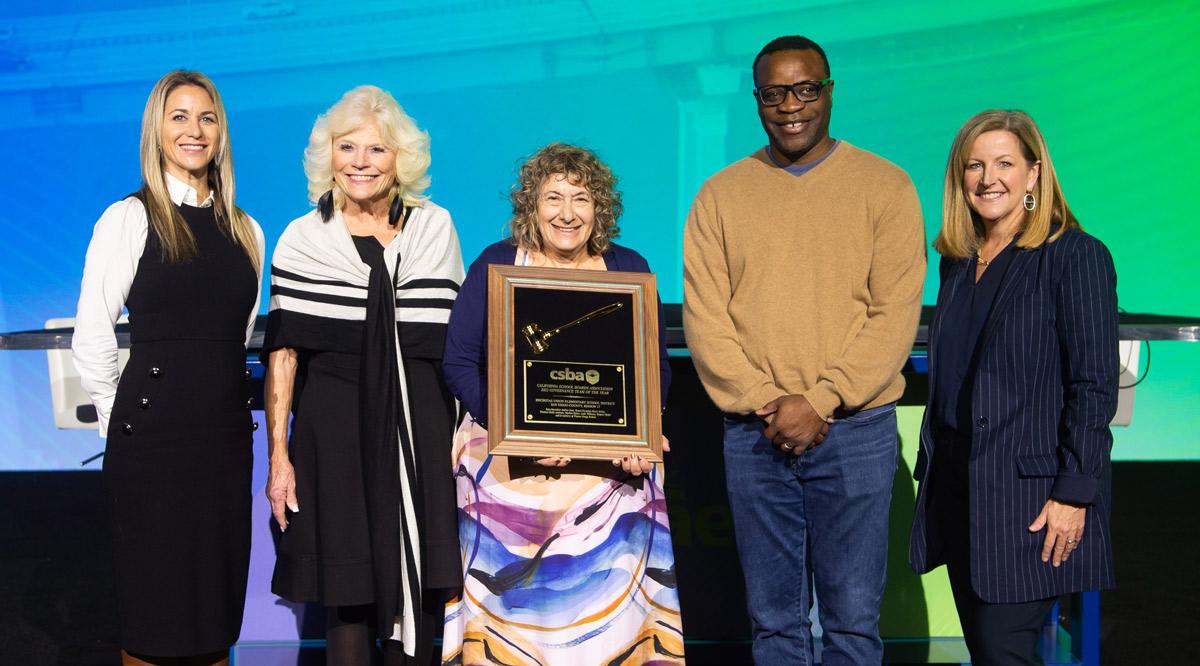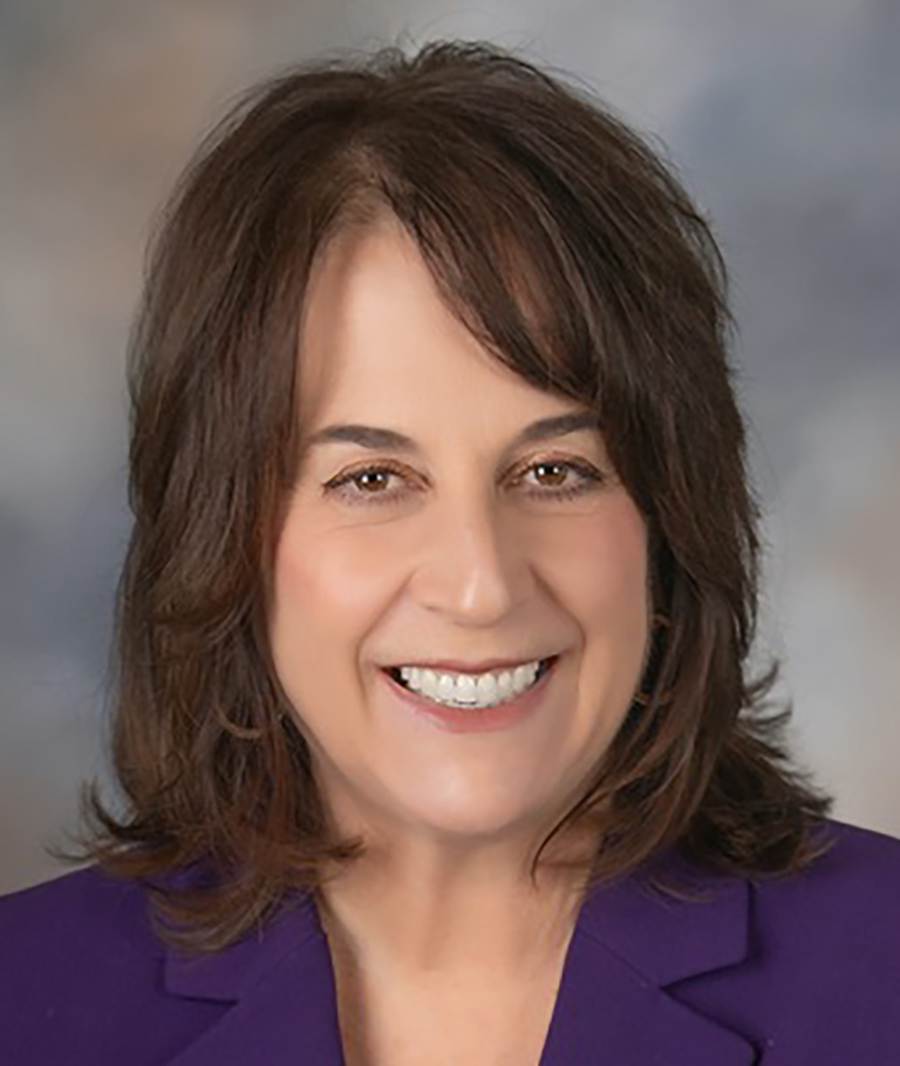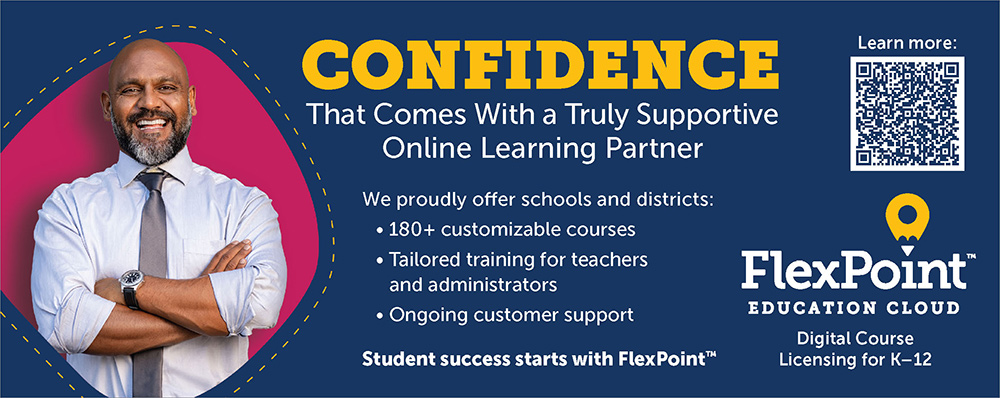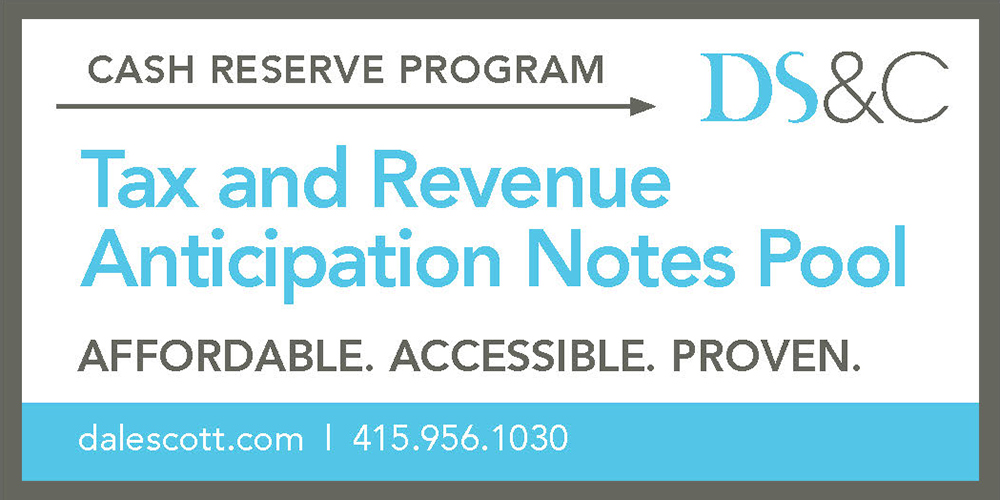The Governor’s plan proposes $108.8 billion in Prop 98 funding for 2023–24, a decrease of approximately $1.5 billion relative to the 2022 Budget Act.
The proposal also includes a Local Control Funding Formula cost-of-living adjustment (COLA) of 8.13 percent, an increase of $4.2 billion in discretionary funds for local educational agencies when combined with growth adjustments. To fully fund this increase and to maintain current year LCFF apportionments, the plan provides $613 million in one-time funds to support the ongoing cost of LCFF in 2022–23 and approximately $1.4 billion in one-time funds in 2023–24.



According to the federal Government Accountability Office (GAO), K-12 schools around the nation have reported considerable educational impact due to cybersecurity occurrences, such as ransomware attacks. Cyberattacks can result in monetary losses for affected schools due to the downtime and resources needed to recover from incidents.
According to a report from the GAO, “officials from state and local entities reported that the loss of learning following a cyberattack ranged from three days to three weeks, and recovery time ranged from two to nine months.” While the precise national significance of cyberattacks on K-12 schools is unknown, research organization Comparitech reported the number of students affected by ransomware attacks between 2018 and 2021, peaked in 2020 with 1,196, 000 affected students.

Troy Flint | tflint@csba.org
Editorial Director:
Kimberly Sellery | ksellery@csba.org
Marketing Director:
Andy Rolleri | arolleri@csba.org
Staff Writers and Contributors:
Alisha Kirby | akirby@csba.org
Heather Kemp | hkemp@csba.org
Teresa Machado | tmachado@csba.org
Kristin Lindgren | klindgren@csba.org
Meghan Russell | mrussell@csba.org
Director of Graphic Design & Branding:
Kerry Macklin | kmacklin@csba.org
Senior Graphic Designer:
Amanda Moen | amoen@csba.org
Susan Markarian | Pacific Union ESD
President-elect:
Albert Gonzalez | Santa Clara USD
Vice President:
Bettye Lusk | Monterey Peninsula USD
Immediate Past President:
Dr. Susan Heredia | Natomas USD
CEO & Executive Director:
Vernon M. Billy
California School News (ISSN 1091-1715) is published 11 times per year by the California School Boards Association, Inc., 3251 Beacon Blvd., West Sacramento, CA 95691. 916-371-4691. $4 of CSBA annual membership dues is for the subscription to California School News. The subscription rate for each CSBA nonmember is $35. Periodicals postage paid at West Sacramento, CA and at additional mailing office. POSTMASTER: Send address changes to California School News, 3251 Beacon Blvd., West Sacramento, CA 95691.
News and feature items submitted for publication are edited for style and space as necessary.


Del was a mentor and friend to hundreds of school board members over the years, but I am one of the few who had the pleasure of serving alongside him as a school trustee. It is one of the great blessings of my life and I could not imagine a more knowledgeable guide or one who was more passionate about public education. Fortunately for me and for others he touched in his life, Del not only had passion for schools, he was also committed to sharing that passion with others. His commitment to and belief in public education was contagious and he was always preaching the gospel, seeking new converts, and helping others find their own sense of purpose and way of giving back.
Chronic absenteeism proved to be a particularly troubling indicator, with 30 percent of students marked as chronically absent in 2021–22 — more than double the rate of 14.3 percent in the 2020–21 school year. Students are considered chronically absent if they miss at least 10 percent of the instructional days in an academic year. As expected due to national and state assessment results, statewide English language arts and Mathematics indicators were at the “Low” level.
“School districts and county offices of education are dedicating time and resources to facilitating learning recovery, supporting student mental health and well-being and continuing to address gaps that existed prior to the pandemic,” said Naomi Eason, CSBA Chief, Research and Education Policy Development Department. “The Dashboard is an important tool to gauge where our students and schools are and plan the most effective strategies to meet them there. This year’s results reflect the traumatic impact of the pandemic on students and underscore the need for continued investment in public education.”
At the conclusion of the First General Session on Dec. 1, CSBA President Dr. Susan Heredia and President-elect Susan Markarian, surrounded by leaders of local educational agencies from across the state, led the Educate, Engage, Empower press conference highlighting boards’ successes and resourcefulness during a challenging period, previewing CSBA’s 2023 legislative priorities and making a case for ongoing investments to support student success. Their voices were heard around California as the pivotal moment was distributed by news organizations.
Governance

“So many school boards have demonstrated resourcefulness, resolve and commitment to student learning and well-being this year that it was difficult to identify just a single winner,” said 2022 CSBA President Dr. Susan Heredia. “But from among this remarkable group of candidates, the Encinitas Union School District board distinguished itself with a relentless focus on the whole child, equity and aligning governance team practice to facilitate the vision and goals adopted by the district and its community.”
To honor these achievements, Encinitas Union SD was inducted into the Golden Gavel Hall of Fame. The San Diego County district represents CSBA Region 17 and was selected for recognition from among 1,000 local educational agencies in California.
The use of social media, as well as other means of communication like the LEA’s podcast, #CJUSD Chats, keeps the community connected and informed. The district, which serves roughly 20,000 students and spans four cities in San Bernardino County, highlights far more than just milestone moments like awards and anniversaries.
Flores uses her social media accounts to amplify events happening in the district, like a winter jacket drive and giveaway, as well as topics she’s passionate about.
A new year brings new laws to consider and incorporate into board practices. Below is a summary of key legislation impacting board governance signed into law in 2022.

CSBA has been monitoring how local educational agencies are using COVID relief funding and issued its first report on the progress of spending federal aid in June 2022. Sept. 30, 2022, marked the first significant deadline associated with the federal COVID-19 emergency aid packages, the Elementary and Secondary School Emergency Relief (ESSER I) fund and the Governors’ Emergency Education Relief (GEER I) fund. By that date, LEAs had to reserve the remainder of their funds in the first packages to be spent no later than Jan. 30, 2023.
In light of this milestone, and because the California Department of Education (CDE) released fall expenditure reports for all ESSER and GEER packages, CSBA has updated its analysis on the spending progress of school districts and county offices of education (COEs). These funding packages were not just historic in their amount — but also in the challenges they were created to address.
Individual school trustees serve as a member of a governance team working to create the vision, goals and structures of a local school district. As a team, the board and the superintendent commit to work collaboratively as they strive to provide the best educational programs for every student.
Building trust is key and open communication is a necessity. When a new trustee is appointed or elected, meeting time should be dedicated to sharing the board’s vision and how it wants to get there. Providing opportunities for new members to ask questions is essential in building collective collaboration in fulfilling these goals.

Student delegates of the 2022 Student Advisory Board on Education Conference held from Oct. 30 through Nov. 2 brought to the board key issues researched and examined during the conference. This year, students emphasized the need for continued work in the areas highlighted in their report: staff qualifications and training, political literacy, student mental wellness support, school safety and socioeconomic equity.

Gina Cuclis,
CCBE President
That is where the California County Boards of Education (CCBE) steps in. Starting in late 2021, CCBE formed a governance initiative committee with the goal of empowering county board members with tools and information to lean into their unique governance and leadership roles. A major result of this initiative is The Trustee Handbook: A Guide to Shared Governance for County Boards of Education. First released Dec. 2 at the CCBE General Membership Breakfast in San Diego, the handbook is intended to assist California’s 341 county board of education members as they seek to contribute to the education of California’s public school students.
Developed with the input of county superintendents, education law experts including CSBA’s Legal Department, and experienced county board members, the handbook provides county trustees with:
- An understanding of the purpose of the county office of education.
The Sacramento County Office of Education is continuing years of efforts to address adverse childhood experiences (ACEs) as a partner organization with WellSpace Health, which was recently awarded a $1 million ACEs Aware grant from the California Department of Health Care Services.
ACEs are traumatic events that individuals experience before age 18 that affect them into adulthood. Examples of ACEs include experiencing or witnessing violence, abuse or neglect; growing up in a home environment with substance abuse or mental health problems; or experiencing family or parental separation. The third round of ACEs Aware funding focused on Preventing and Responding to ACE-Associated Health Conditions and Toxic Stress in Clinics through Community Engagement (PRACTICE).
Besides building partnerships and identifying ways to fill gaps, another goal associated with the PRACTICE initiative is to “expand the workforce to fill these gaps and address toxic stress and ACE-Associated Health Conditions among Medi-Cal beneficiaries in a sustainable way,” according to ACEs Aware.
Institute for New and First-Term Board Members
MIG Course 1: Foundations of Effective Governance/Setting Direction
Governance with an Equity Lens – 2023
MIG Course 1: Foundations of Effective Governance/Setting Direction
Feb. 10
The Brown Act
Institute for New and First-Term Board Members
Board Presidents
MIG Course 2: Student Learning & Achievement/Policy & Judicial Review
Board Presidents
Feb. 3–4
Institute for New and First-Term Board Members | Rancho Cucamonga
Orientation for New Trustees | Sacramento

Thanks for reading our January 2023 newsletter!








